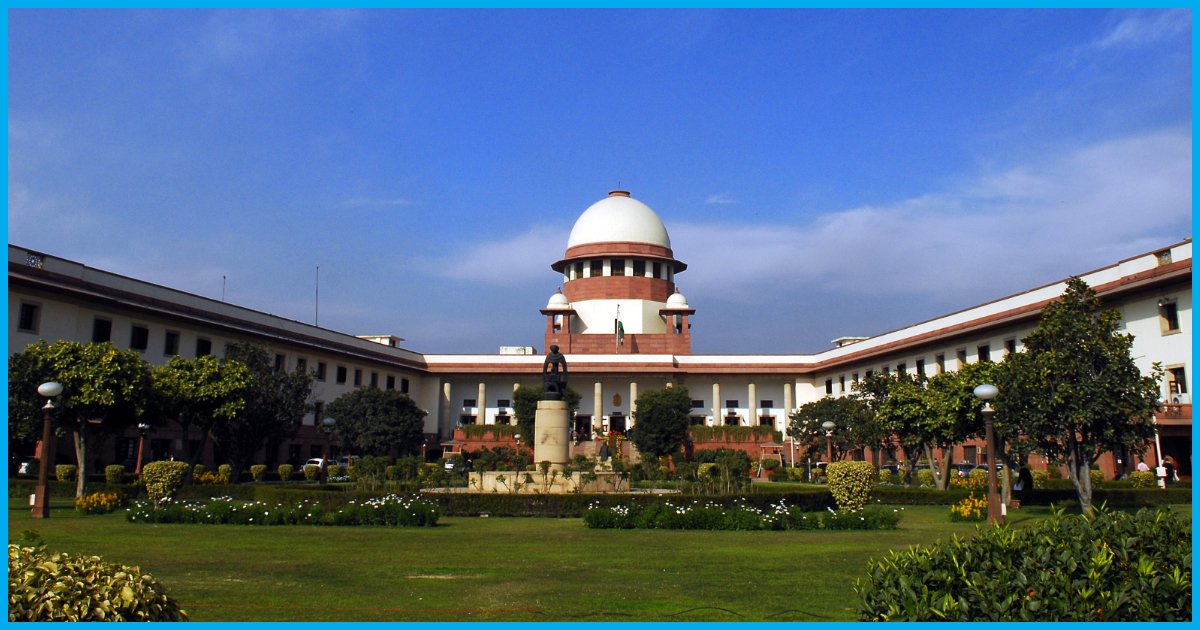
The Supreme Court Has Ruled On The Right To Privacy Twice Before; Here’s What It Said
20 July 2017 4:16 AM GMT
Editor : Pooja Chaudhuri
The only fiction I enjoy is in books and movies.
The Supreme Court is currently hearing arguments to rule on whether the right to privacy is a fundamental right guaranteed by the Constitution to all Indian citizens. The verdict will be divulged any day now, and it will surely be a crucial one – not only because privacy has become a primary debate in the Digital Age but also because of the intrinsic links between privacy and the government’s push to increase the mandate of Aadhaar and UIDAI.
The right to privacy finds no mention in the Constitution. This right, however, has been inferred from Article 19 and Article 21. Besides these Articles, the right has been culled from various court judgements over the years.
As for the question of whether the right to privacy is a fundamental right, the Supreme Court ruled against this proposition on two main occasions – in 1954 and in 1962:
The understanding of the above-mentioned judgements is important to understand the ongoing debate in the SC. On 19 July 2017, the SC said, “During the course of the hearing today, it seems that it has become essential for us to determine whether there is any fundamental right of privacy under the Indian Constitution … The determination of this question will essentially entail whether the decision recorded by this court in M P Sharma and Ors vs. Satish Chandra, District Magistrate, Delhi and Ors. (of 1950) by an eight-judge Constitution bench, and also, in Kharak Singh vs. the State of UP and Ors. (of 1962) by a six-judge Constitution bench, that there is no such fundamental right, is the correct expression of the constitutional position.”
MP Sharma and Ors vs Satish Chandra (1954)
MP Sharma and Ors vs Satish Chandra relates to an incident of search and seizure of documents of Dalmia Company following an investigation into corrupt malpractices within the company.
Police registered an FIR on 19 November 1953, and a request was made to the District Magistrate, Delhi, for search warrants. The DM issued the warrants and searches were carried out at 34 places belonging to the Dalmia group.
In their petitions under Article 32 (and adding that the searches violated Article 19 and Article 20(3)) before the Supreme Court, the company claimed the searches were unconstitutional and said their private records were taken away.
However, the court observed, “A search and seizure is, therefore, only a temporary interference with the right to hold the premises searched and the articles seized. Statutory regulation in this behalf is necessary and reasonable restriction cannot per se be considered to be unconstitutional. The damage, if any caused by such temporary interference if found to be in excess of legal authority is a matter for redress in other proceedings.”
The court further said, “… Fundamental right to privacy, analogous to the American Fourth Amendment, we have no justification to import it, into a totally different fundamental right.”
Kharak Singh vs the State of UP (1962)
Kharak Singh vs the State of UP revolved around a man released from prison due to lack of sufficient evidence in a dacoity case. The police later opened a “history sheet” against him and also put the man under surveillance. The man duly approached the court, saying the surveillance was unconstitutional and violated his fundamental rights
The apex court observed, “The right of privacy is not a guaranteed right under our Constitution and therefore the attempt to ascertain the movements of an individual which is merely a manner in which privacy is invaded is not an infringement of a fundamental right guaranteed by Part III.”
Other relevant cases under the right to privacy debate include
- Govind vs State of MP (1975),
- Rajagopal vs State of TN (1995) and
- Naz Foundation vs Govt. of NCT Delhi (2006).
 All section
All section













